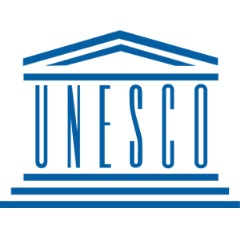UNESCO trains Arab state and private broadcasters on Gender Sensitive Indicators for Media
In keeping with its commitment to contribute to gender equality and women’s empowerment in and through the media, UNESCO will hold a comprehensive training session for broadcasting members of the Arab States Broadcasting Union, as well as private media, in Amman, Jordan from 30 July to 1 August 2017.
The training session will bring together gender 20 focal points from broadcasters from the region to develop action plans that will assist in putting gender transformative policies together, using the framework of UNESCO’s Gender Sensitive Indicators for Media (GSIMs).
The Gender Sensitive Indicators for Media encourage news and media organizations to think critically about how their workplace practices and the content they produce contribute to gender stereotypes in society.
“UNESCO is committed to gender equality as part of the 2030 Sustainable Development Goals agenda. This training is part of that commitment, as it allows for UNESCO Member States to come together through their national broadcasters and build their capacity to address gender gaps and stereotypes that can have a negative impact on society.”, Mirta Lourenço, UNESCO’s Chief of Section for Media and Society said.
Ms Lana Al-Saqqa Abdullah, head of the Gender Unit at the Palestinian Broadcasting Corporation said, “I am looking forward to developing my skills in formulating gender policies that can be implemented in our organization. The challenge for broadcasters in gender equality is to encourage society to progress and change the culture of stereotypes about women”.
By the close of the training, participants will be able to recognize the importance of reviewing their organization’s editorial policy and practices to check for gender bias and gender balance in content. They will also be able to implement action plans that train and equip broadcasters with the skills to assess gender representations in senior and technical positions and working conditions in their organizations.
The Gender Sensitive Indicators, Arabic version, will be launched at the end of the training, with the express hope that Member States and broadcasters, as well as media organizations, civil society organizations and journalism schools, will take up the GSIMs in the region to promote gender equality in and through the media.
The indicators have at their heart, international instruments and conventions, such as the Convention on the Elimination of All Forms of Discrimination Against Women (link is external) (CEDAW) and the Beijing Declaration and Platform for Action (link is external). UNESCO’s commitment and strategy for gender equality is well formulated in the “Priority Gender Equality Action Plan 2014 – 2021” stating, “Through the GSIM, UNESCO will encourage media organizations, particularly those which are public service institutions, to address gender inequalities. Empowerment through the media includes action to empower women in and through the media, through enhanced freedom of information, and through the promotion of safety of women journalists, particularly in post-conflict situations”.
( Press Release Image: https://photos.webwire.com/prmedia/8/211449/211449-1.png )
WebWireID211449
This news content was configured by WebWire editorial staff. Linking is permitted.
News Release Distribution and Press Release Distribution Services Provided by WebWire.
